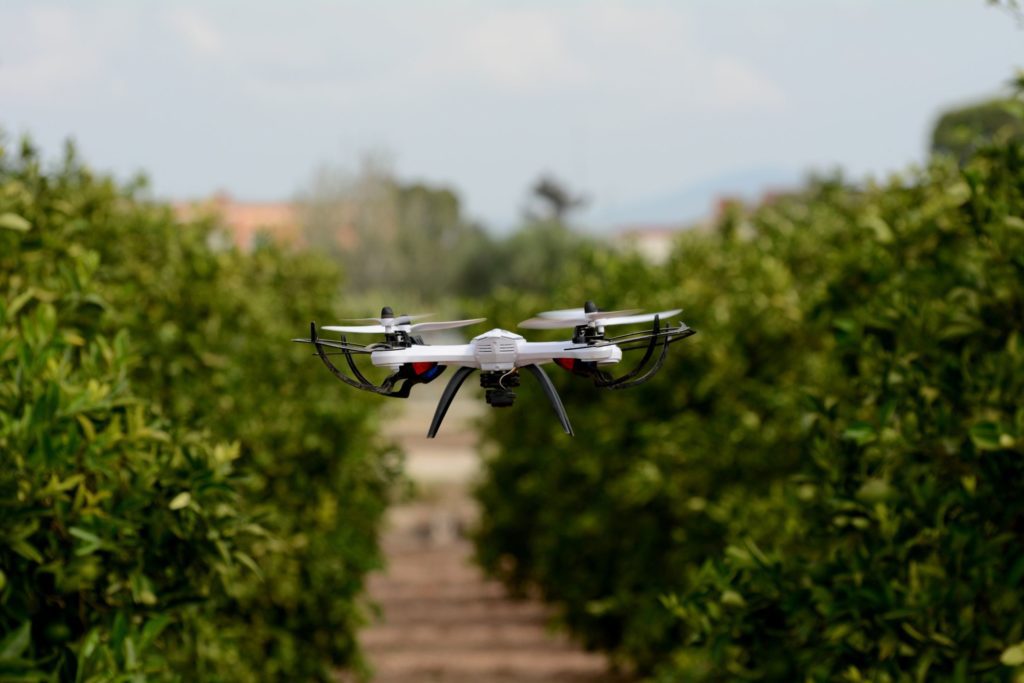 By 2050, there will be 9.1 billion people inhabiting our earth, the Food and Agriculture Organization of the UN predicts. That’s about 34 percent more than there are today. To feed them, farmers will need to produce greater yields at lower costs—often with fewer resources on less land. This means farmers will need a lot of help from their science and technology partners to create efficiency, improve yield and develop new opportunities.
By 2050, there will be 9.1 billion people inhabiting our earth, the Food and Agriculture Organization of the UN predicts. That’s about 34 percent more than there are today. To feed them, farmers will need to produce greater yields at lower costs—often with fewer resources on less land. This means farmers will need a lot of help from their science and technology partners to create efficiency, improve yield and develop new opportunities.
As a result, within just the next 10 years, we’ll see dramatic changes in digital technology, biological technology and a newly reconfigured value chain. Here are some of the trends the agribusiness ecosystem should be prepared for.
• Digital technology. Sensors and robotics are the two most prominent types of digital technology in agriculture. Sensors will track everything from soil richness, plant ripeness, pest populations, seed location and sunlight level to thousands of weather data points. Robotics will further enable tractors to drive themselves and mechanical plant harvesters will integrate with sensors to better realize efficiencies in timing. Soil nutrients will be measured on the fly and applied only as needed. Picking too early is wasteful because you miss out on growth, but picking too late slashes weeks off the storage time. Precision farming engineers will build robots and apps that make calculations about ripeness by gathering information about size and color and then running an algorithm. They’ll send farmers alerts about their decisions to their smartphones or farmers can take a photo of the fruit and the phone app will automatically grade the fruit. Further advancements in artificial intelligence and vision systems will distinguish crops from weeds, diagnose a plant disease. Drones are already being used for pest scouting and taking photos of the crop to determine the effectiveness of various treatments. Drones also will be able to spray pesticides to very specific field locations.
“We’ll soon live in a world where consumers increasingly ask for specific products and expect producers to adapt and deliver.”
• Biological technology. This will be huge! Increasing restrictions on chemical pesticides and consumer demand for synthetic chemical residue-free and organic food are driving demand for biologically-based products. More importantly, farmers are integrating biologicals in their pest management and crop production programs to increase yields and quality better than chemical-only programs. Over time, biologicals will become the base of the programs rather than niche products slotted into chemical programs. Biologicals are the perfect fit into sustainable ag and food systems because they are produced using agricultural raw materials and are highly biodegradable, generally safe to pollinators and people, can be sprayed right up to harvest (and leave no chemical residues). Pests generally do not develop resistance to biologicals; therefore, when integrated into programs with chemicals, biologicals can slow or stop the pest resistance to the chemicals. Biotech advances, including gene editing technology, can help produce drought-resistant crops, non-spoiling fruits and vegetables, peanuts that don’t trigger allergies, and feed that produces “meatier” chickens.
• A reworked value chain. Until recently, producers were largely in control of what landed on consumer’s plates. There was limited public information about products and quality was important, but not a primary concern. Today consumers are insisting on more transparency, including input on food quality, attributes and sourcing practices. We’ll soon live in a world where consumers increasingly ask for specific products and expect producers to adapt and deliver. It is already happening that consumers can watch a farm live on their webcam.
Plenty of other factors will play an important role in the development of farming – including labor costs, immigration policy, climate change and increased use of greenhouses for large-scale farming, as well as the growing scarcity of key water, soil and energy resources.
It’s an exciting—even revolutionary—time to get involved in agriculture. The ecosystem around farming is large and there are tremendous opportunities for digital, tech and other businesses to influence and make a difference in farming. And with four jobs available today for each graduate in agriculture, there are few industries more exciting, or poised for more explosive growth. Together, we can overcome any crop or hunger challenge. Let’s feed the world.

Chief Executive Group exists to improve the performance of U.S. CEOs, senior executives and public-company directors, helping you grow your companies, build your communities and strengthen society. Learn more at chiefexecutivegroup.com.
0

1:00 - 5:00 pm
Over 70% of Executives Surveyed Agree: Many Strategic Planning Efforts Lack Systematic Approach Tips for Enhancing Your Strategic Planning Process
Executives expressed frustration with their current strategic planning process. Issues include:
Steve Rutan and Denise Harrison have put together an afternoon workshop that will provide the tools you need to address these concerns. They have worked with hundreds of executives to develop a systematic approach that will enable your team to make better decisions during strategic planning. Steve and Denise will walk you through exercises for prioritizing your lists and steps that will reset and reinvigorate your process. This will be a hands-on workshop that will enable you to think about your business as you use the tools that are being presented. If you are ready for a Strategic Planning tune-up, select this workshop in your registration form. The additional fee of $695 will be added to your total.

2:00 - 5:00 pm
Female leaders face the same issues all leaders do, but they often face additional challenges too. In this peer session, we will facilitate a discussion of best practices and how to overcome common barriers to help women leaders be more effective within and outside their organizations.
Limited space available.

10:30 - 5:00 pm
General’s Retreat at Hermitage Golf Course
Sponsored by UBS
General’s Retreat, built in 1986 with architect Gary Roger Baird, has been voted the “Best Golf Course in Nashville” and is a “must play” when visiting the Nashville, Tennessee area. With the beautiful setting along the Cumberland River, golfers of all capabilities will thoroughly enjoy the golf, scenery and hospitality.
The golf outing fee includes transportation to and from the hotel, greens/cart fees, use of practice facilities, and boxed lunch. The bus will leave the hotel at 10:30 am for a noon shotgun start and return to the hotel after the cocktail reception following the completion of the round.